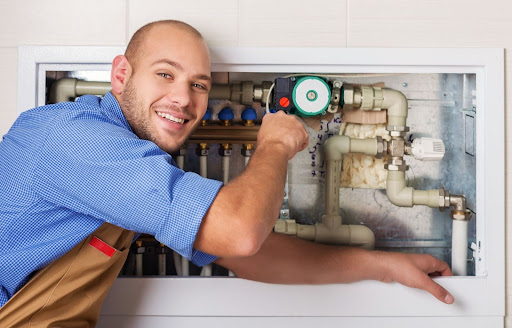Being well-prepared is undeniably essential in life, and home maintenance especially plumbing emergencies is no exception. Plumbing problems, both major and minor, are an unfortunate reality for every homeowner. When these emergencies occur, they can bring with them an onslaught of challenges, causing vacillating anxiety and potential home catastrophe if left untreated. The importance of knowing how to handle a plumbing emergency swiftly and efficiently can make the difference between a simple inconvenience and substantial, costly damage to your home.
Possessing quick reflexes to navigate such situations is crucial. Therefore, this extensive article aims to arm you with all you need to know to manage a plumbing emergency effectively. It serves as a comprehensive guide to handling a variety of potential plumbing crises, minimising lasting damage, and understanding when it’s the right time to bring an experienced professional in the mix.
Understanding What Constitutes a Plumbing Emergency
At the crux of effectively handling a plumbing emergency is comprehending precisely what marks a problematic situation as an emergency. Not to be confused with minor inconveniences, a plumbing emergency, by definition, is any plumbing situation that, if not swiftly attended to, can pose significant threats to a property’s infrastructure, sanitation and safety standards, as well as a huge disruption to daily routines.
Potential emergencies can take a myriad of forms beyond what most homeowners may typically envision. Some common emergencies include severe leaks or ruthlessly burst pipes capable of turning an average home into an instantaneous water feature, blocked toilets or drainage systems capable of causing an unpleasant build-up or backflow of waste, and sudden hot water system problems that can transform a warm, refreshing shower into a chilling experience.
Then there are the silent disasters such as gas leaks which carry the probability of explosions, sewer backups that can propel harmful pathogens into your living space, and non-stop dripping taps silently but systematically increasing water usage, affecting not just your water bill but also our precious environment.
The consequences of turning a blind eye or delaying action during a plumbing emergency cannot be underestimated. Prolonged water exposure can cause substantial structural damage to properties, rising damp and potential mould growth, which can impact the health and well-being of occupants. Furthermore, certain emergencies can threaten home safety, such as the risks of slip-and-falls from water pooling or potentially catastrophic explosions from unnoticed gas leaks.
The delicate balancing act faced by most homeowners is knowing precisely when to call a professional plumber. Although minor issues might provide an opportunity for a courageous DIY adventure, significant plumbing mishaps need the expertise of a trained professional. Attempting to rectify these issues without the correct knowledge can potentially amplify the problem.
Immediate Responses to Plumbing Emergencies
Stepping into the chaos that follows a plumbing emergency can be disorienting. However, adopting the right safety measures and having a clear, strategic plan can significantly minimise potential damage. Awareness and quick application of safety precautions is a vital first response. Electrical appliances and outlets should be turned off and, if possible, unplugged to prevent water from triggering an electrical disaster.
It is advantageous to inform all household members of the ongoing emergency, ensuring everyone prioritises safety measures like avoiding using any electrical devices near water-logged areas or being cautious of areas prone to slipping due to pooling water.
In scenarios where water is flowing aggressively due to a leak or burst, it is imperative to turn off the main water supply immediately. This switch typically resides near the water meter for most properties. However, variations may occur based on individual property designs.
Undertaking steps to protect and minimise damage to your valuable possessions and furniture can be a game changer. Removing these items or placing them on elevated surfaces far from the affected areas can assist in restricting the havoc wreaked by water.
Keeping a level head during such emergencies may be challenging but is incredibly crucial. Knee-jerk reactions or actions driven by panic can potentially heighten the damage and cost of the emergency. Therefore, maintaining calm and thoughtfully assessing the situation is paramount.
DIY Steps in Handling Minor Plumbing Emergencies
While the image of gushing water and overflowing sewage might dominate thoughts around plumbing emergencies, not all situations demand professional aid. Certain minor issues offer a chance for homeowners to don the hat of repairs and experience a bit of DIY. Having a fundamental understanding of your home’s plumbing system and a handful of household tools can make resolving these minor issues a reality.
For inconveniences like minor leaks, blockages or partially blocked drains, a practical toolkit consisting of simple tools like adjustable wrenches, pipe wrenches, plungers and drain snakes can be surprisingly effective. Whether it’s tightening loose bolts or trying your hand with a plunger or drain snake, these repairs can often be carried out without expert intervention.
Some DIY hero moments can arise from situations like unclogging a stubborn toilet or a sluggish sink drain. A good test of skill is taking on the challenge of managing a persistently leaky faucet. Successfully replacing a worn-out washer or tightening a loose fixture might provide the satisfaction of a job well done.
However, not all problems come in neat little packages that make DIY a viable option. Recognising when issues have crept beyond the realm of domestic problem-solving into the territory where professional expertise is the only solution is integral.

Teaming Up With A Professional Plumber
Even the bravest and most adept DIY enthusiasts have to concede certain battles, recognising that having a reliable and trusted professional plumber is an invaluable asset. These professionals have years of training, practical knowledge, an arsenal of tools, and experience in tackling a variety of plumbing problems.
Their skills are indispensable when faced with emergencies such as non-stop gushing water from a burst pipe or flooded basement, stubborn blockages that refuse to yield to plungers and drain snakes, hazardous gas leaks, or a complete shutdown of your essential hot water system. In the face of such crises, one thing is clear – you’ll need a reliable, trustworthy plumber.
The process of choosing the right professional plumber requires careful consideration. Looking at credentials, verifying their licenses and insurance are all essential steps to ensure you’re hiring a competent contractor. Also considering past customer reviews and discussing quotes from different providers forms an essential part of informed decision-making.
When you find yourself faced with a plumbing emergency that necessitates professional intervention, clear communication of the situation is critical. Providing a detailed narrative of the issue, as well as including specific events, sounds, or noticeable damage, can aid the plumber in swiftly diagnosing the problem and formulating an effective response strategy.
Preventing Future Plumbing Emergencies
“An ounce of prevention is worth a pound of cure”, and this proverb rings especially true regarding plumbing emergencies. Performing regular checks and periodic maintenance is the cornerstone of prevention, serving to ward off major emergencies and maintain a well-functioning, efficient plumbing system.
Staying vigilant for early signs heralding potential problems can be extremely beneficial in avoiding severe plumbing emergencies. Look out for red flags like sinks that drain slower than usual, a toilet needing frequent plunging, damp spots on cabinets and walls, or a sudden, unexplained spike in your water bill.
Also, understanding and avoiding common mistakes that lead to plumbing emergencies can save a lot of unwarranted stress and hit to the pocket. These mistakes include flushing unsuitable items down the toilet or drain, ignoring small, seemingly inconsequential leaks, and making overconfident and ill-advised attempts to fix complex problems without professional guidance.
Professional plumbers also play a significant role in preventive maintenance. Their experience equips them to spot potential problems or malfunctioning components during routine check-ups or small repair jobs. These pre-emptive actions undertaken by plumbers often prevent problems from escalating into full-blown emergencies.
Conclusion
Learning about, understanding, and effectively executing the crucial steps to take during a plumbing emergency can mean the difference between a trivial hiccup in your day or a severe property damage scenario. From your immediate response to the emergency to knowing when the job is beyond DIY measures, each step taken can be decisive in averting significant loss and inconvenience.
Moreover, being prepared for unpredictable circumstances is a pillar of stress-free homeownership. Empower yourself by gaining familiarity with your home’s plumbing setup, understanding how to take preliminary emergency measures, and knowing who to reach out to in case things spiral beyond your control.
Recognising when to step back and enlist the aid of professionals to tackle the emergency at hand is a crucial part of this process. Not every problem you encounter in your home’s plumbing system is readily solvable without expert help.
The role of professional services, their expertise, and their prompt response become the unsung heroes during complex plumbing emergencies. They ensure exhaustive problem resolution and bring about a restorative balance to everyday life. While confronting a plumbing emergency can be a daunting task, it becomes a manageable one with the right knowledge and resources at your disposal.





